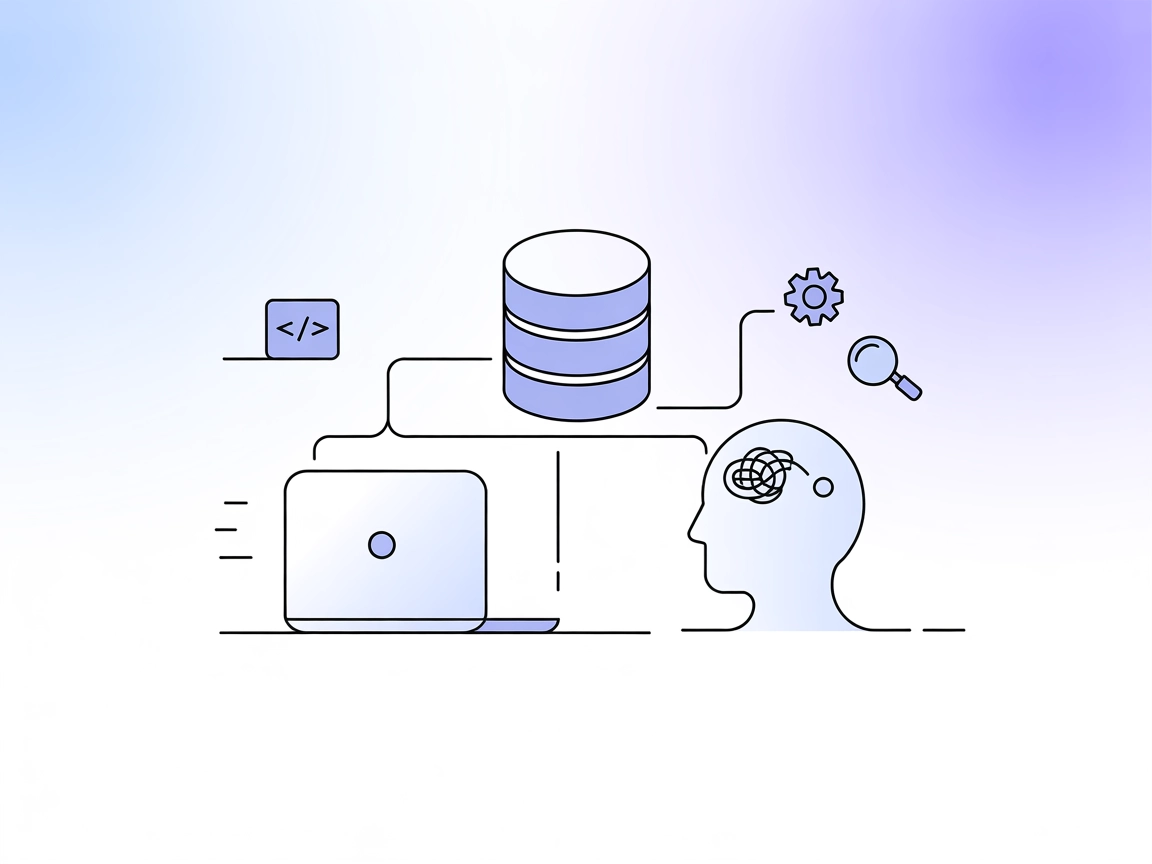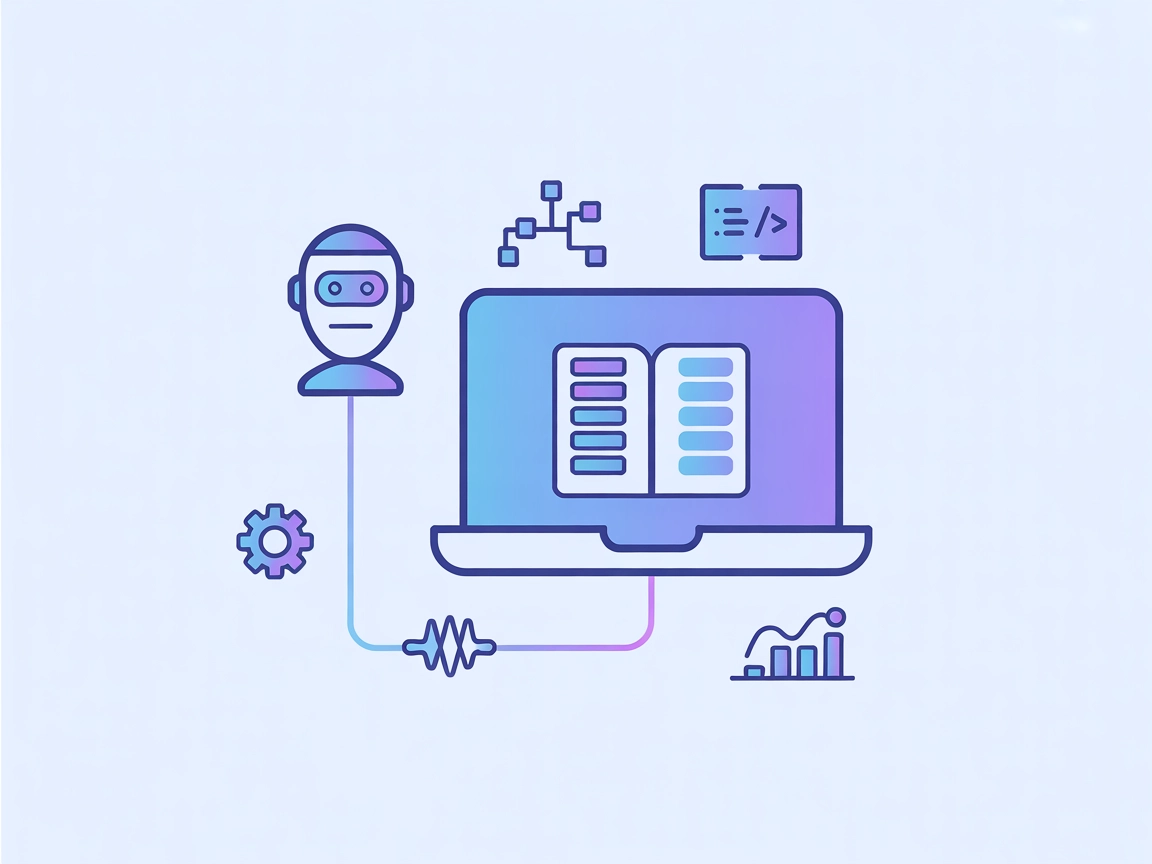What does “JetBrains” MCP Server do?
The JetBrains MCP Server acts as a proxy between AI clients and JetBrains IDEs such as IntelliJ, PyCharm, WebStorm, and Android Studio. By bridging AI assistants with the development environment, it enables enhanced workflows where AI agents can interact directly with the IDE. This connectivity allows for tasks such as code navigation, project management, executing commands, or accessing IDE services via the Model Context Protocol (MCP). The integration leverages the MCP Server plugin for JetBrains products, making it possible for developers to utilize large language models and automation tools to streamline development, automate repetitive tasks, and provide intelligent suggestions within their familiar JetBrains IDE interface.
List of Prompts
No prompt templates are mentioned in the available documentation.
List of Resources
No specific resources are listed in the available documentation.
List of Tools
No explicit tools are described in the available documentation or server.py.
Use Cases of this MCP Server
- IDE Automation: Enable AI to automate repetitive tasks in JetBrains IDEs, such as running builds or managing projects, thus increasing developer productivity.
- Cross-IDE Integration: Use AI agents to interact with multiple JetBrains IDEs, supporting workflows that span across different language or project types.
- AI-powered Navigation: Allow AI to assist with navigating large codebases by leveraging built-in IDE features, making code exploration faster and more intuitive.
- Seamless AI-IDE Communication: Facilitate direct communication between AI clients and JetBrains IDEs for real-time suggestions, code completions, or refactoring tasks.
- Multi-Platform Support: Leverage the server’s compatibility with IntelliJ, PyCharm, WebStorm, and Android Studio for consistent AI integration across popular JetBrains tools.
How to set it up
Windsurf
- Ensure Node.js and the JetBrains MCP Server Plugin are installed in your JetBrains IDE.
- Open Windsurf’s configuration settings.
- Add the JetBrains MCP Server by editing your User Settings (JSON) file:
{ "mcp": { "servers": { "jetbrains": { "command": "npx", "args": ["-y", "@jetbrains/mcp-proxy"] } } } } - Save the configuration and restart Windsurf.
- Verify the connection to your JetBrains IDE.
Securing API Keys (Example)
{
"mcp": {
"servers": {
"jetbrains": {
"command": "npx",
"args": ["-y", "@jetbrains/mcp-proxy"],
"env": {
"IDE_PORT": "your_ide_port"
}
}
}
}
}
Claude
- Install the JetBrains MCP Server Plugin in your IDE.
- Open
claude_desktop_config.json(Mac:~/Library/Application Support/Claude/claude_desktop_config.json, Windows:%APPDATA%/Claude/claude_desktop_config.json). - Add the MCP server configuration:
{ "mcpServers": { "jetbrains": { "command": "npx", "args": ["-y", "@jetbrains/mcp-proxy"] } } } - Save and close the file.
- Restart Claude Desktop and make sure your JetBrains IDE is open.
Securing API Keys (Example)
{
"mcpServers": {
"jetbrains": {
"command": "npx",
"args": ["-y", "@jetbrains/mcp-proxy"],
"env": {
"IDE_PORT": "your_ide_port"
}
}
}
}
Cursor
- Install Node.js and the JetBrains MCP Server Plugin in your IDE.
- Create or edit
.vscode/mcp.jsonin your workspace:{ "servers": { "jetbrains": { "command": "npx", "args": ["-y", "@jetbrains/mcp-proxy"] } } } - Save and restart Cursor.
- Verify the MCP server connection in your IDE.
Securing API Keys (Example)
{
"servers": {
"jetbrains": {
"command": "npx",
"args": ["-y", "@jetbrains/mcp-proxy"],
"env": {
"IDE_PORT": "your_ide_port"
}
}
}
}
Cline
- Confirm Node.js and the MCP Server Plugin are installed in your JetBrains IDE.
- Access your Cline configuration file.
- Add the MCP server entry with:
{ "mcpServers": { "jetbrains": { "command": "npx", "args": ["-y", "@jetbrains/mcp-proxy"] } } } - Save changes and restart Cline.
- Ensure your JetBrains IDE is open when you connect.
Securing API Keys (Example)
{
"mcpServers": {
"jetbrains": {
"command": "npx",
"args": ["-y", "@jetbrains/mcp-proxy"],
"env": {
"IDE_PORT": "your_ide_port"
}
}
}
}
Note: Replace
"your_ide_port"with the actual port of your IDE’s built-in webserver.
How to use this MCP inside flows
Using MCP in FlowHunt
To integrate MCP servers into your FlowHunt workflow, start by adding the MCP component to your flow and connecting it to your AI agent:

Click on the MCP component to open the configuration panel. In the system MCP configuration section, insert your MCP server details using this JSON format:
{
"jetbrains": {
"transport": "streamable_http",
"url": "https://yourmcpserver.example/pathtothemcp/url"
}
}
Once configured, the AI agent is now able to use this MCP as a tool with access to all its functions and capabilities. Remember to change "jetbrains" to the actual name of your MCP server if it differs and replace the URL with your own MCP server URL.
Overview
| Section | Availability | Details/Notes |
|---|---|---|
| Overview | ✅ | Good summary present |
| List of Prompts | ⛔ | No prompts documented |
| List of Resources | ⛔ | No resources documented |
| List of Tools | ⛔ | No tools described in available files |
| Securing API Keys | ✅ | Uses env vars for IDE_PORT in config examples |
| Sampling Support (less important in evaluation) | ⛔ | Not mentioned |
Based on the documentation, JetBrains MCP Server is well-maintained and popular, but lacks publicly documented prompt, resource, and tool primitives in this repository. Configuration is well-covered, and support for securing API keys is present. Overall, its utility is high for JetBrains IDE users, but documentation could be more thorough for MCP-specific features.
MCP Score
| Has a LICENSE | ✅ (Apache-2.0) |
|---|---|
| Has at least one tool | ⛔ |
| Number of Forks | 54 |
| Number of Stars | 772 |
Frequently asked questions
- What is the JetBrains MCP Server?
The JetBrains MCP Server acts as a proxy between AI clients and JetBrains IDEs, enabling AI agents to automate tasks, provide code navigation, and interact with IDE features via the Model Context Protocol (MCP).
- Which JetBrains IDEs are supported?
The MCP Server is compatible with IntelliJ IDEA, PyCharm, WebStorm, and Android Studio, offering multi-platform support for AI integration.
- Can I use AI to automate tasks in my JetBrains IDE?
Yes, with the MCP Server, you can automate repetitive tasks, manage projects, and utilize AI-powered navigation and suggestions directly within your JetBrains IDE.
- How do I secure the connection between FlowHunt and my JetBrains IDE?
You can secure your configuration by setting sensitive information like IDE ports using environment variables, as shown in the configuration examples above.
- Are there built-in prompt templates or resources for this MCP Server?
Currently, no specific prompt templates or additional resources are documented for this server. The integration focuses on enabling AI-IDE communication and automation.
Integrate JetBrains IDEs with FlowHunt
Boost your development workflow by connecting JetBrains IDEs with FlowHunt’s AI capabilities through the MCP Server.




